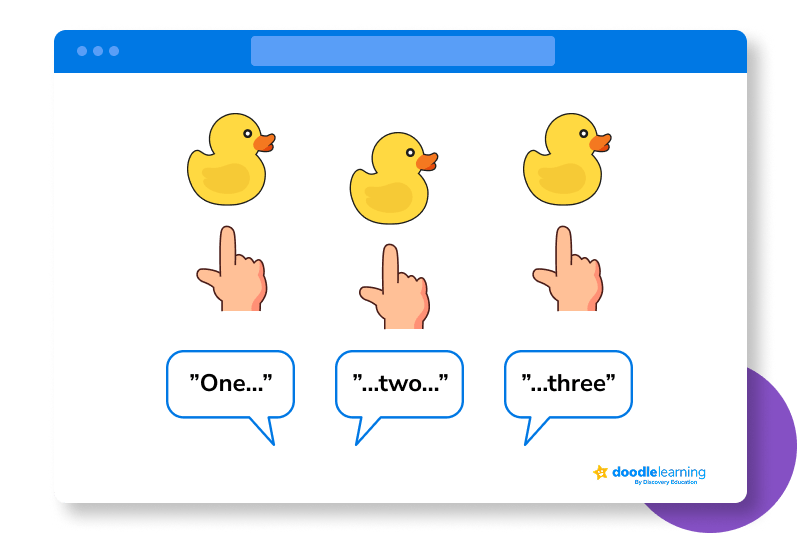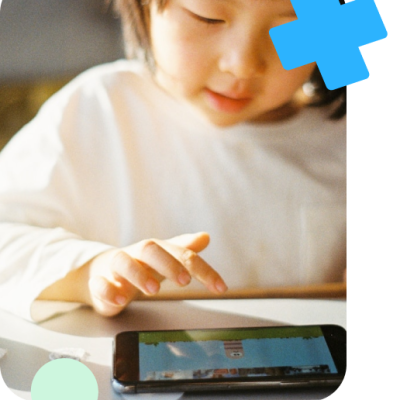EYFS maths builds early number and shape skills through playful, everyday learning.


EYFS maths builds early number and shape skills through playful, everyday learning.

Author
Mhairi
Published
October 2025


Key takeaways
Table of contents
Before our kiddos even set foot in a classroom, they’re already little mathematicians! Many of the behaviours they exhibit through play, like sorting toys into piles, filling and emptying cups or boxes, and noticing one biscuit is bigger than another, are all maths discoveries!
Early maths skills are an important predictor of later academic success, but what exactly do kids cover during the Early Years Foundation Stage (EYFS) maths, and how can you support their learning at home? We’ll take a look at all of this and more in this guide to the Early Years Foundation Stage maths framework!
Early Years Foundation Stage maths is more than just memorising numbers. Learning primarily covers three areas: number, numerical patterns, and shape, space, and measure.
Each of these areas offers crucial learning opportunities for our kids to build strong maths understanding and develop skills they’re likely to use daily as adults! Not only that, but skills learned in the Early Years Foundation Stage maths are highly transferable: kiddos will eventually be using these in subjects like science, art and design, and technology.
It’s important that early years maths is fun and rooted in play-based, active learning opportunities and experiences. This could look like:
Through effective questioning during these activities, practitioners encourage children to think critically and develop their problem-solving abilities.
EYFS practitioners will also highlight maths through daily routines such as counting children at the start of the day, updating a classroom calendar, drawing attention to how they are sharing out snacks, displaying a countdown timer for tidy-up time, and more!
Every group of children in an early years setting is different, and children will all be at different points in their learning as they start. Some might already be able to count past 20, while others are only just starting to recognise numerals.
EYFS practitioners will assess every child’s existing knowledge by chatting, playing, and observing them. They’ll then use this assessment throughout the EYFS to identify the next steps in the children’s learning. This process is repeated throughout the year to track kiddos’ development.
These practitioner observations are also used in the Reception Baseline Assessment (RBA) and EYFS Profile.
Understanding numbers goes far beyond simply counting aloud! There are a few key concepts to cover when learning about numbers.

Activities such as counting steps aloud, spotting numbers in the environment, ordering number cards, playing simple board games, and even cooking or baking are perfect for reinforcing number sense and getting to grips with simple numerical patterns!
In Early Years Foundation Stage maths, exploring shape, space, and measure begins with hands-on, play-based activities and daily routines.
Children develop their understanding of shape and space by:
These activities encourage learners to make discoveries about different 2D and 3D shapes. They’ll explore shape properties and consider how these affect the ways they see and can use the shapes.
Playful activities also help kids to form their understanding of measurement as they:
These activities and others like obstacle courses support little ones in developing their fine and gross motor skills and understanding of space. This spatial awareness is another key element of maths learning for EFYS learners.
Unlock unlimited maths questions
Put your skills to the test with fun exercises + maths games that are proven to boost ability!
Try DoodleMaths for Free!
Select a year group
The Early Years Foundation Stage framework sets out Early Learning Goals (ELGs), which little learners are expected to meet ahead of Year 1 and the KS1 curriculum. For maths, there are six ELG:
Number
Children at the expected level of development will:
Numerical Patterns
Children at the expected level of development will:
Reinforcing maths beyond the classroom is easier than you think! We all use maths in small ways throughout the day, so our everyday home routines are the perfect way to provide some extra maths practice:
When your energy for hands-on maths activities is running low (we don’t blame you – preschoolers are non-stop!), let your kiddos loose on the DoodleMaths app! The app is perfect for learners over 4 years old and is fully aligned with the EYFS curriculum. It encourages a short daily maths practice session – perfect for when you just need ten minutes peace, guilt-free!
By the end of their Early Years Foundation Stage Maths journey, kiddos should:
Integrating maths into everyday life and routines – counting stairs, comparing the size of different toys, and looking for and reading numbers around you are great places to start. Activities like cooking or baking, shopping, and playing maths games together also provide lots of opportunities to support maths learning.
Early maths sets the ball rolling for kids to develop highly transferable skills like problem-solving and critical thinking, which they’ll use throughout school and beyond. Having positive, high-quality experiences now helps to build a strong foundation on which these skills flourish and learners grow in confidence!
Brain teasers are a great way for children to develop essential life skills that will improve academic performance as well as persistence and dedication. Moreover, brain teasers are beneficial for people of all ages, including college-age students and adults, since they improve memory and encourage critical thinking.


Parents, sign up for a DoodleMaths subscription and see your child become a maths wizard!

Book a chat with our team
If you’d like to use Doodle’s browser version, please visit this page on a desktop.
To log in to Doodle on this device, you can do so through our apps. You can find out how to download them here: